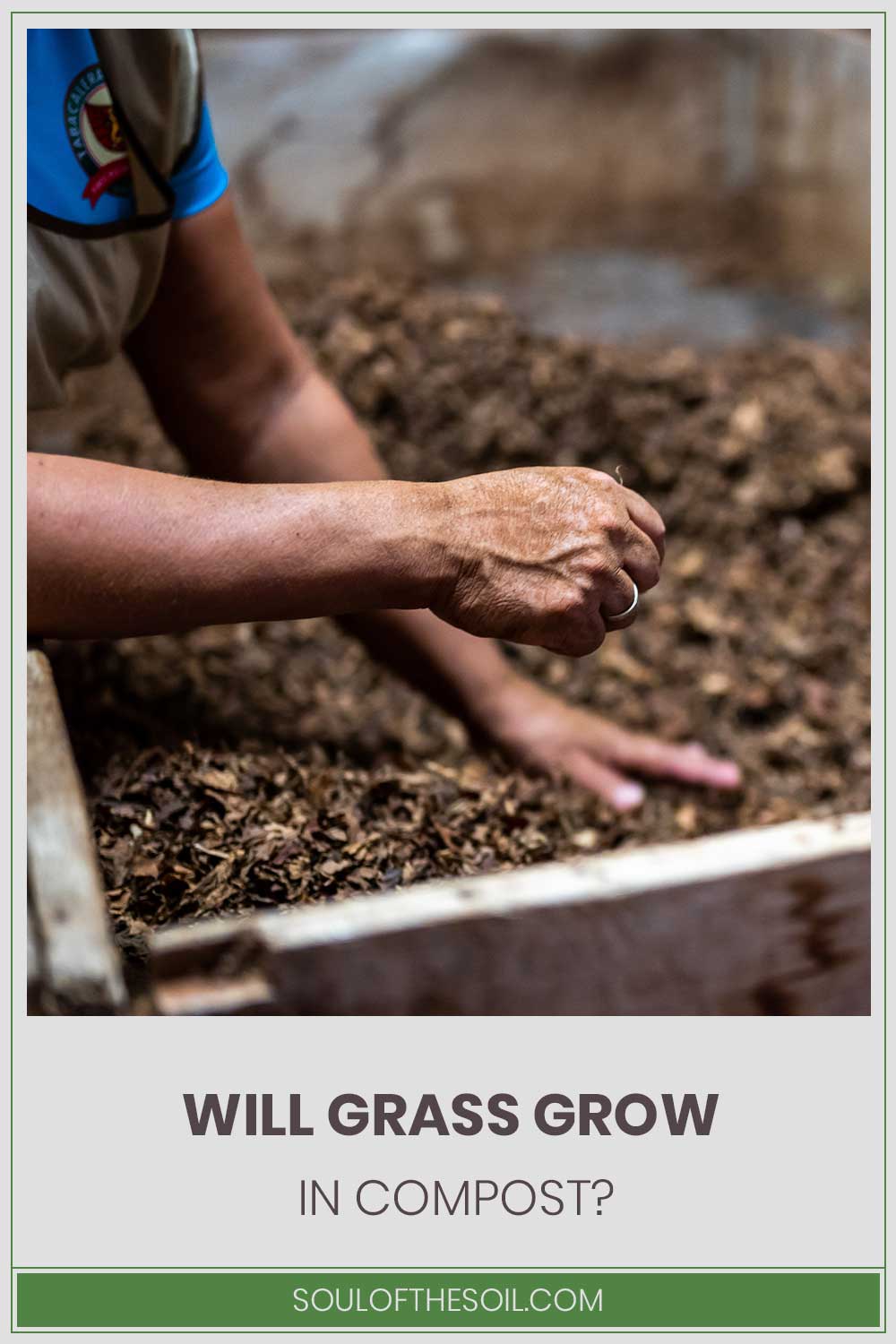Will Grass Grow in Compost?
We may earn commissions for purchases made through links on our site. Learn more on our about us page.
For those that are not privy to what compost is made up of, the quick answer is that the soil is generated from natural materials. These natural fertilizers are going to help the grass grow with stronger and fuller root systems, leading to thicker grass patches.
Even more, when the grass is dying in certain areas, if allowed to, a new layer of compost can decompose the dead material to recycle the matter and turn it into usable parts for the new healthier blades of grass.
Compost is a very healthy element when applied to fields or lawns, and grasses benefit in the most basic of needs but with surplus nutrients.

Will Grass Seeds Grow in Pure Compost?
Compost, for how hard we all work to keep it dry, the soil will have a natural ability to retain moisture which can lead to creating a perfect habitat that will encourage the seeds to sprout.
From there, the roots will have plenty of healthy matter to hold onto and drink from as the seedlings become full blades of grass. It takes more effort to mess this formula up than it does to spread a layer of compost and then spread grass seed over the fresh new soils.
Can You Use Compost Instead of Topsoil for Grass?
Landscapers use a technique for fixing bald spots in fields and lawns, including compost as a topsoil layer blanket to protect the plants being covered, but inject nutrients into the growing dirt around the plants.
Topsoil refers to the uppermost layer of dirt on a field or grow box. Most of the earth’s nutrients have been used to the point it becomes topsoil, which is why compost can be such a hero in drought situations.
Using compost to complement the layer of topsoil can only benefit the plant life growing there.
Tips for Growing Grass in a Compost
There is a major business in growing turf for athletic fields, university lawns, and company campuses. This will mean using compost-rich soils to initiate the growth of strong grasses for the consumer, and the first tip is to limit watering to prevent ‘drowning’ new seedlings.
Compost has the natural gift of retaining moisture, making it easy for the grasses to drink from the soil. Another tip will be to give the grass a nice balanced place to grow. The closer to half the day in the cooler morning sun and shielded from the hot afternoon rays, the better.
Common Mistakes You Need to Avoid:
- Overwatering the sod – The most common mistake made when beginning a new lawn is to lose patience and overwater the grass seed; as mentioned above, compost is naturally skilled at retaining water.
- Applying too much compost to topsoil – a thick layer can benefit most fast-growing grasses, but there are going to be some instances where the soil will be too much and become anaerobic.
- Not adding enough grass seed – Do not be shy. Spread the seeds with reckless abandon. There will be no such thing as too much grass seed when adding it to a fresh field of compost soil.
Final Thoughts on Will Grass Grow in Compost
There is not much to be said about using compost to help with the healthy growth of grasses, and the fact is simple grass loves to grow in rich soil and natural fertilizer.
If you are working to create a full lawn, then by all means, get your hands on fresh compost, till up the crusty old soil, and mix in the living soil to revive the patch of earth.
The nutrients from compost can be just what the lawn doctor ordered, but it also can be an even better place to start. Having rich soil to begin growth with can only provide the best environment for plants to grow.



Leave a Reply
You must be logged in to post a comment.